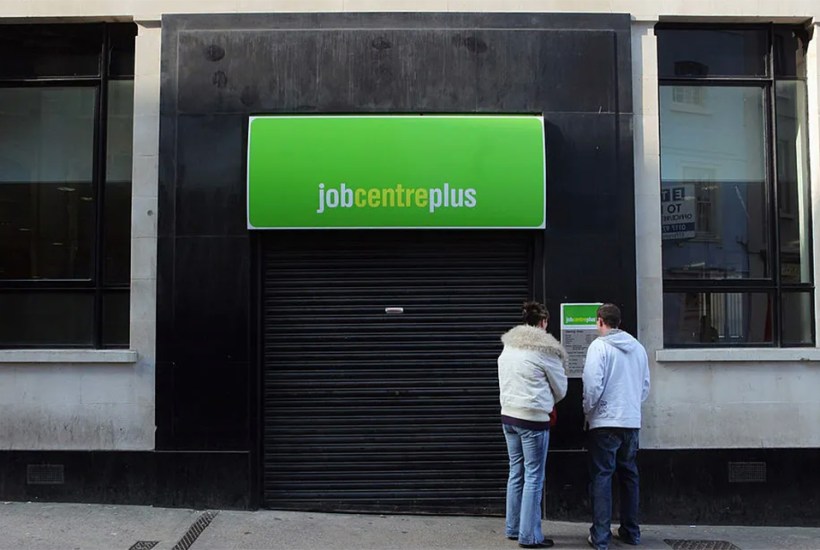It’s the Chancellor who will deliver next week’s Autumn Statement, but every-one knows it will have been ghost-written by Rishi Sunak. When Jeremy Hunt ran for party leader, his own proposal was to take corporation tax from 19 per cent to 15 per cent. Now, he wishes to raise it to 25 per cent. When Hunt speaks next week, we should imagine Sunak’s voice.
Liz Truss spooked the markets by combining unexpected tax cuts with a spending splurge bigger than Sunak’s furlough scheme: a £10 billion-a-month subsidy on energy prices, going even to the richest. This was a shock, sprung on markets at a time when interest rates were rising globally. About two-thirds of the interest rate rises that emerged under Truss would probably have happened anyway, but politically this is irrelevant. Her timing was so spectacularly bad that she – and the Tories – will now be blamed for all of it.
Kwasi Kwarteng imagined that high borrowing would stimulate the economy and do it so effectively that the problem of debt would diminish. In this respect Kwarteng and his opposite number, Rachel Reeves, had similar ideas; it is the Labour approach to borrowing.
It is not in Sunak’s power, or anyone else’s, to bring back the old era of dirt-cheaploans. His mission will be to adapt to a harsh new reality. Governments once again need to balance their books. The Chancellor has already signalled what to expect: tax rises and spending cuts. Unless he has been misleading us, his Autumn Statement next week will mark not just a reversal of Truss’s economic policy but a rejection of Boris Johnson’s too. ‘Cakeism’ will give way to gruel. Austerity is back. Many on both the Labour and Tory benches will be appalled by the idea of significant austerity, which some expect to be the most severe since 1970.
The Tory plans are disruptive and chaotic; they are rewriting what was supposed to be a long-term economic agenda. The Tories stood on a 2019 manifesto pledge not to raise income tax, National Insurance or VAT; Sunak tore up that pledge for the sake of a relatively paltry increase in NI.
There is, of course, a price to pay for such unreliability. If the Prime Minister places a low value on Tory manifesto pledges, voters can be expected to do the same. Businesses had made long-term plans based on a solemn Tory promise that corporation tax would steadily fall. If that is now replaced by panicked tax hikes – compounded by smash-and-grab windfall taxes – it also sends the message that the UK is now a dangerous place to invest.
Tax rises may be the only option facing a country which has lost face in world markets, but when the Prime Minister asks why companies are reluctant to spend their cash, he should bear this in mind: if his party keeps changing its tax regime, then businesses will be reluctant to make long-term plans. We should not expect to hear the mantra ‘growth, growth, growth’ for quite a while.
The Bank of England’s chief economist Huw Pill has expressed the fear that the recession will be blamed on the Bank. He also pointed out that growth is hampered at present by a flurry of early retirement. It is compounded by the fact that 5.3 million people are claiming out-of-work benefits – a scandalous figure that the Tories will not acknowledge because they prefer to cherry-pick figures and pretend that unemployment is at a 40-year low.
This pretence is destructive and counterproductive. In a country where job vacancies are near a record high, vast swaths of our great cities are now workless zones. No wonder economic growth is so dismal. How can any country prosper if it is failing so spectacularly to use the talents of so many of its citizens? The Tories have brought us a world first: they have somehow managed to combine mass worker shortages with mass unemployment. That’s quite a feat – and a very expensive one.
Sunak is lucky in that he is not yet under attack for this. This scandal remains hidden because the big figure – the 5.3 million – has been broken up into various components behind password-protected government websites. It’s amazing how easy it is, in politics, to throw people off the scent. But the PM will be under no illusions. If he cannot cut taxes to grow the economy, he has only one other option: to reform welfare and persuade more people to join an economy crying out for workers.
David Cameron’s great success was to increase employment: at one point, he called the Tories the ‘workers’ party’. With enough honesty, imagination and determination, it could be again. Welfare reform is one of the hardest jobs in politics, but as Britain enters a new austerity era it may well be the only pro-growth option that the Tories have left.
The post The new era of austerity appeared first on The Spectator.
Got something to add? Join the discussion and comment below.
Get 10 issues for just $10
Subscribe to The Spectator Australia today for the next 10 magazine issues, plus full online access, for just $10.
You might disagree with half of it, but you’ll enjoy reading all of it. Try your first month for free, then just $2 a week for the remainder of your first year.














Comments
Don't miss out
Join the conversation with other Spectator Australia readers. Subscribe to leave a comment.
SUBSCRIBEAlready a subscriber? Log in